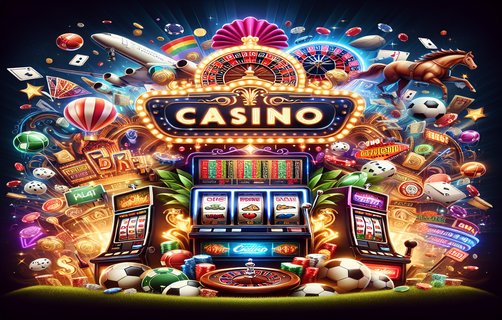Understanding the Landscape of Gambling from the Loser's Perspective
In the complex world of gambling, the experience of losing is often overshadowed by the thrill of winning. However, for many participants, losses can constitute a sizeable portion of their gambling journey. In this analysis, we will examine various aspects of gambling from the loser's perspective, including the role of risk-free bets, helplines, credit card casinos, casino reopenings, table limit strategies, virtual casino developments, and mobile gambling laws.
One of the alluring concepts within gambling is the idea of risk-free bets. These promotions entice players by allowing them to wager without the immediate fear of losing their own money. However, for the average gambler, these bets can create a false sense of security. While they can mitigate risks temporarily, they often lead participants to place larger bets than they typically would. Consequently, what starts as a seemingly harmless engagement can quickly spiral into significant losses. From the perspective of a gambler who has lost, understanding the mechanics and limitations of such bets is crucial to making informed decisions about engagement.
Additionally, the role of helplines cannot be underestimated. For those reflecting on their gambling habits after experiencing losses, helplines serve as an essential resource. Various organizations provide support and guidance to individuals grappling with gambling addiction or those simply looking to regain control. These resources provide not only listening ears but also preventative advice for responsible gambling. Awareness of these services is vital for gamblers, particularly those who may feel overwhelmed after a losing streak. It’s crucial for casinos and online platforms to actively promote these helplines to ensure that players have access to the support they need when losses mount.
Another relevant topic is the emergence of the credit card casino phenomenon, where users are often tempted to place bets using borrowed funds. This practice can lead to dire financial situations, especially when losses accumulate and individuals feel the pressure to win back lost money. The psychological impact of losing is profound, and for many, the ability to access credit cards and leases to facilitate gambling can lead to a dangerous cycle of debt and desperation. From the viewpoint of seasoned gamblers, recognizing the risks associated with credit card use can be life-changing, as it may prompt individuals to reconsider their approach toward funding their gambling activities.
As the world transitions through various stages of reopening after the pandemic, casino reopenings represent both opportunities and challenges. On one hand, these establishments aim to attract players back into their venues. On the other hand, players returning after a significant absence might not have fully accounted for changes in their behavior or financial status. The excitement of being back in a social gambling environment can overshadow the caution that comes after experiencing prior losses. Awareness campaigns leading up to reopenings highlighting responsible gaming could greatly assist in reminding players to gamble within their limits.

The concept of table limit strategy also bears significance for those who have experienced losses. Many casinos employ table limits to entice players. For those who have suffered losses, understanding these limits can help in developing a strategy that minimizes risk while playing. This strategy might involve consistently playing at lower stakes to prolong the gaming experience and avoid significant financial hit. Such discipline can lead to a more enjoyable session, as it can provide players with a clearer mindset and enhance their decision-making abilities.
The shift towards virtual casino developments has gained much momentum, driven primarily by technological advancements and wider accessibility. However, these developments also come with their own set of challenges. While online gambling might yield more convenience and potentially reduce the social pressures found in physical casinos, the ease of access can further magnify losses. Virtual environments often lack the tangible feedback of physical financers, making it easier for individuals to lose track of their spending. Understanding this dynamic is critical, particularly for players who have previously lost substantial amounts online.

Lastly, mobile gambling laws are continually evolving, posing unique challenges for those who may have experienced losses in gambling. As laws change, players may find themselves unsure of the legal landscape they're navigating. This uncertainty can lead to decisions based on emotion rather than sound judgement. Staying informed about local laws and regulations is imperative for gamblers who want to engage in safer betting practices without falling victim to unexpected legal repercussions or financial pitfalls.
In conclusion, exploring the gambling landscape from the loser's perspective illuminates the various factors at play in the decision-making process of gamblers. Understanding risk-free bets, utilizing helplines, recognizing the dangers of credit card use, navigating casino reopenings, employing table limit strategies, adapting to virtual developments, and adhering to mobile gambling laws can empower gamblers to make informed and responsible choices. By reflecting on these elements, individuals will be better equipped to manage their gambling habits and potentially mitigate the impact of losses in the ever-evolving gambling environment.
